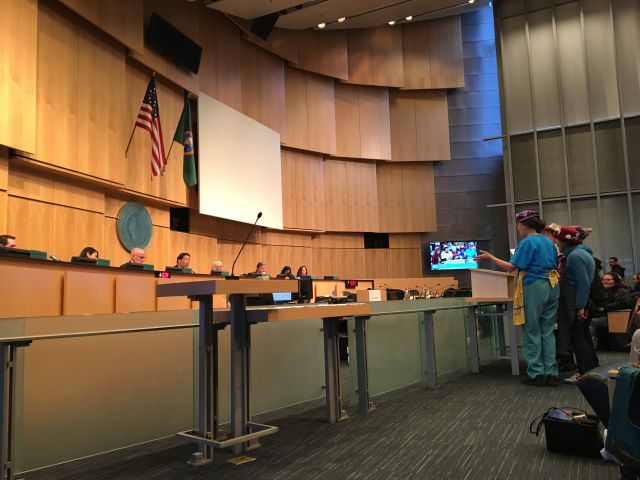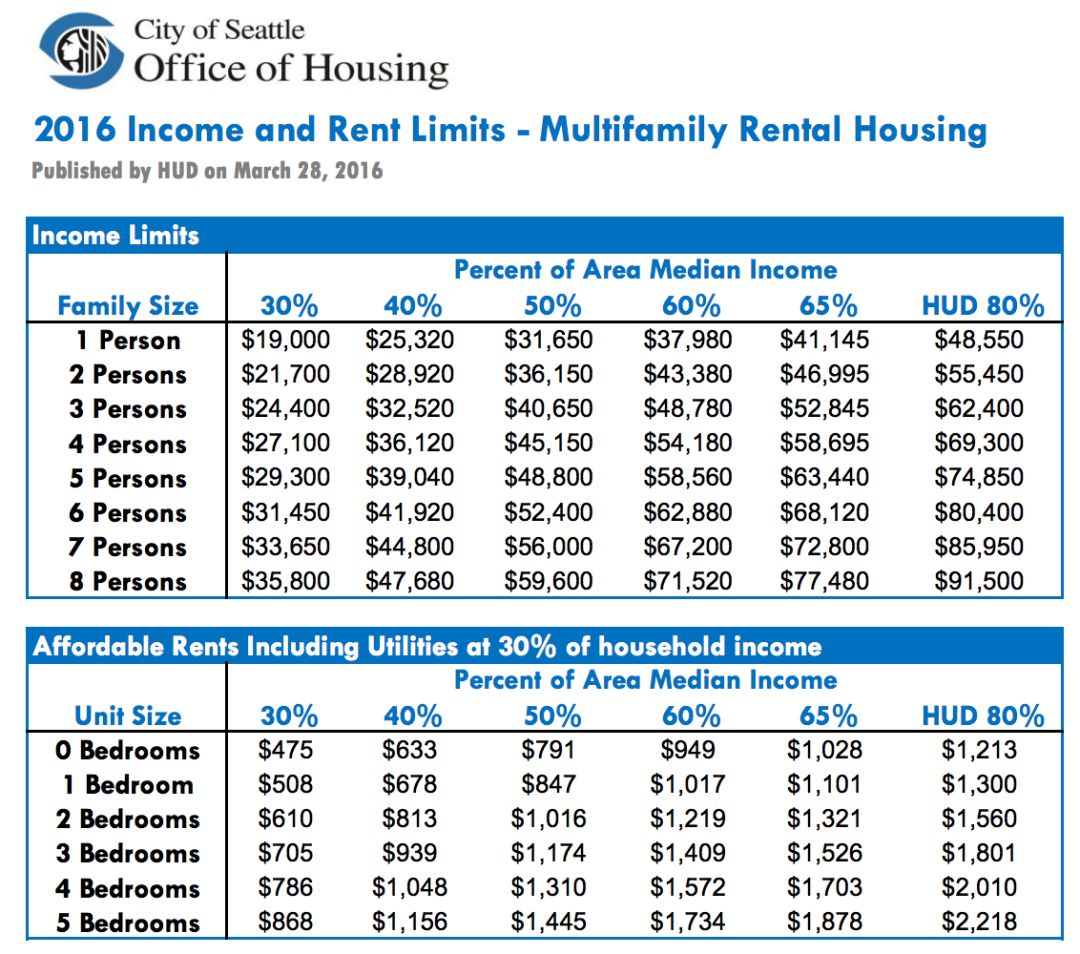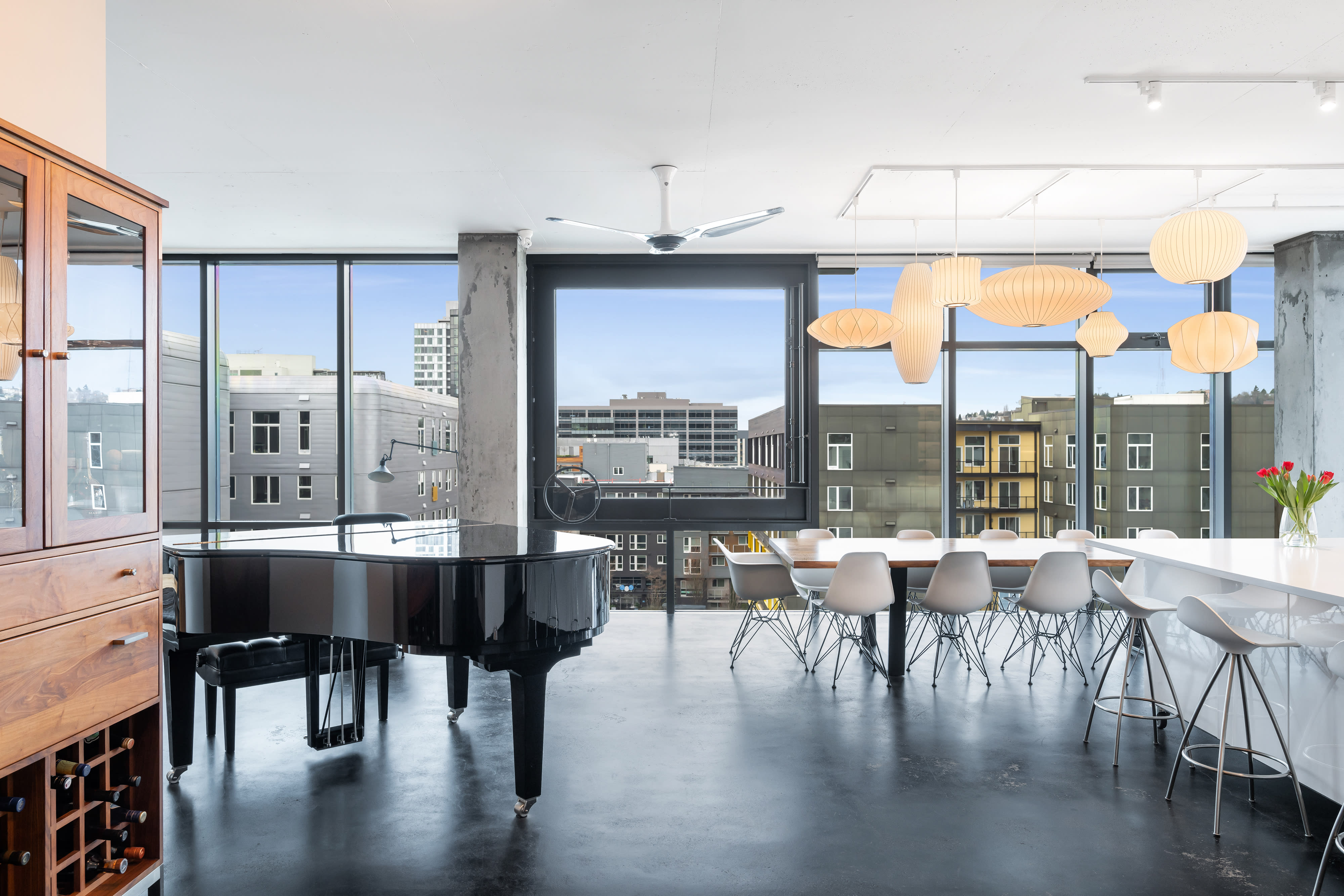Seattle City Council Mandates Affordable Housing in South Lake Union, Downtown
The Seattle City Council just made affordable housing mandatory for developers.

The Raging Grannies sing to Seattle City Council about their support for council member Lisa Herbold's amendment on April 10, 2017.
Image: Hayat Norimine
Council members unanimously approved zoning changes Monday that implemented the Mandatory Housing Affordability program, which requires developers to build a certain amount of affordable housing downtown and in South Lake Union and imposes fees if developers don't meet that amount.
The legislation aims to create 2,100 affordable housing units, which make up one-third of the city's 10-year goal and are expected to have a life span of 75 years. They must be affordable for households with 60 percent of the area's median income or less. (That's at $1,219 a month for a two-bedroom that includes utilities, according to the City.)

But for activists at the crowded council meeting, the ordinance still fell short.
Many citizens were calling on council members to approve Lisa Herbold's change to increase the percentage of required affordable housing to 5 percent (it ranges from 2 to 5 percent) and increase fees on developers to $14.75 per square foot. Among the speakers was Jon Grant, who's running for Tim Burgess's open at-large council seat this year.
"Please give my children a chance to live in their city when they grow up," said Maria-Jose Soerens, who carried her five-month-old baby on her chest as she spoke to the council. Soerens lives in South Park and said she represented a group of Latina neighbors that called itself the Latina Nuestro Barrio South Park.
The Grand Bargain last year—between mayor Ed Murray for his Housing Affordability and Livability Agenda and industry stakeholders—settled on aspects of the legislation that developers didn't want to see changed. Johnson said he believed setting the fees and the percent too high would reduce the chances that developers would opt into the program and take away from the primary goal the city's trying to achieve.
"If we set the numbers too high, they will not build any affordable housing," Johnson said. The city plans to make a report in June 2018 about the program's progress, and at that time the city can adjust if it's not meeting its goals, Johnson added.
Activists showered cries of "shame" and "cowards" when only Herbold and Kshama Sawant voted to approve the amendments.
Council member Tim Burgess defended the ordinance that passed and said it "does set the city on a new path and a new course." He added that the rhetoric painting developers in a "nefarious" light was untrue and said many of them were nonprofits.
"These are the folks that are actually building affordable housing," Burgess said.
Other citizens came in support of the rezoning.
"I know this is a very complicated issue, but what's not complicated is we need more housing, more housing, and the direction to go is up," said Nicole Grant, who represented the Martin Luther King Labor Council.




